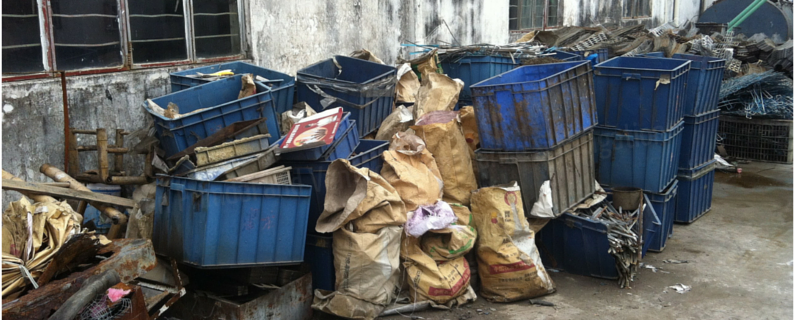China’s immense industrial growth over the past 35 years brings with it as much social confusion as it does economic wealth. Understandably, changing the beliefs and behaviors of 1.3 billion citizens is not an act – it’s a process. And that process has been made more complex because of the country’s recent political and cultural history.
It was only 100 years ago, in 1911, that the 4000 year dynastic, Confucian tradition was overturned in favor of Sun Yat-sen’s republican government. That “republican” period was replaced by the Communists in 1949 when Mao Zedong led the country into almost 30 years of cultural and economic fundamental change. Finally, the late 1970ies, Deng Xiaoping assumed and consolidated national leadership and launched the far-reaching economic reforms that brought the country into direct contact with the western industrial world. The enormous social and political changes in China have reframed its moral and ethical parameters through chaos and upheaval. These changes have created a contemporary Chinese society that some say lacks a coherent moral framework that is shared by all the various sections of its society. Either way, the current Chinese society is formed by these influences.
Western businesses that engage in sourcing in China (and other Asian countries) experience these cultural disparities in many ways. For example, it can be quite common for the Asian-based factory to tell its customers what they want to hear, which is not necessarily the whole truth. In most western countries, such an act would be considered unethical, and may even be the basis for legal proceedings. If the misrepresentation happens in China, it may be because the factory leadership is advancing its own “moral” interpretation of the rules by ensuring ongoing business that will economically support the local community. The two goals – ‘a well-performed contract’ and ‘an economically stable community’ – are both “good”. The conflict is created when the means of achieving one (a stable economy) prevents achievement of the other (production of a quality product, made according to standards and expectations).
The situation is made more difficult in the presence of illicit activities such as bribery which continues to plague the Chinese society.
China’s obsessive drive for economic dominance has caused many of its leaders to focus entirely on this Key Performance Indicator and in the process disregard social and environmental challenges. In many cases conflicting KPIs don’t help to set things straight.
The long-term consequence is that many local industrialists become jaded to the regulations too and are willing to cut quality and service to improve their factory’s “bottom line”.
For international manufacturers, such challenges can cause huge ramifications in contracts and with other manufacturing partners. Supplies may be compromised; health and safety codes may be violated, and violations of environmental and social responsibility standards may cause damages and injuries. The reputation of every international producer can be ruined by a failure to investigate and ensure that their Chinese or Asian manufacturing contractor is, in truth, operating within the expected and agreed standards.
In my 14+years working in Asia with corporate risk mitigation, I have had much experience helping western producers avoid the problems posed by morally-challenged manufacturers. I have personally witnessed how cultural divergence has confused both sides of the contract, leading to losses for both. I have seen how excellent technology can be rendered inconsequential because there was no corresponding training or leadership to modify existing systems. Many westerners believe that if a factory has the necessary equipment installed, then the staff and management have the skills and training to use it effectively. Often this is simply not the case.
On the plus side, I have seen numerous facilities work hard to improve their services and educate their workers regarding western contract, environmental and human resource standards. I have personally trained hundreds of Chinese factory workers and their western counterparts so that cultural misunderstandings are addressed and minimized.
China has recently launched a new program ( “Made in China 2025”) that promises to improve their national standards to equal those established by Europe’s industrial leaders. Clear communication between the factory and its western contractor is critical to that process.
If you would like to know more, you can download a free report “8 Problems Businesses face when sourcing from China here.
https://vantagecompliance.com/8-problems-businesses-face-when-sourcing-goods-from-china-bg/
This blog was written by Carsten Primdal, an independent consultant who helps businesses that have manufacturing done overseas – especially in China – to minimise supply chain risk.Drawing on years of on-the-ground experience and a strong understanding of the cultural and commercial context, Carsten is passionate about helping his clients to gain greater control over the risks most companies face knowingly or unknowingly.
Urgent issues? Questions? Concerns? If you are considering/already buying from Chinese factories and would like more information, please feel free to contact us for an obligation free talk.
I can be reached at carsten@vantagecompliance.com or on (+61) 413 089 020
You may also like to read some of my other blogs. They can be found here:
Keeping Your Supply Chain Green: Avoiding the Environmental Polluters when sourcing in China
Ensure Timely Contract Compliance with a Chinese Supply Chain ExpertTwo Key Questions To
Answer Before Onboarding Your Chinese Manufacturing Supplier
Off-Shore Manufacturer’s Certificates Require Credibility
Factory Planning Principles Improve Supply Chain Quality
Mitigating Risk of Quality Fade in Overseas Manufacturing Facilities
How to Assure your “Green” Supply Chain in China
ChAFTA Opens Doors for increase in China-Australia Business relations
China Verification for Your Manufacturing Supplier Needs
Australian Industry Agreements Encourage More Chinese Factory Verifications
China Factory Verification: Check Before You Buy
Frozen berry recall highlights potential supply chain risks in offshore production



